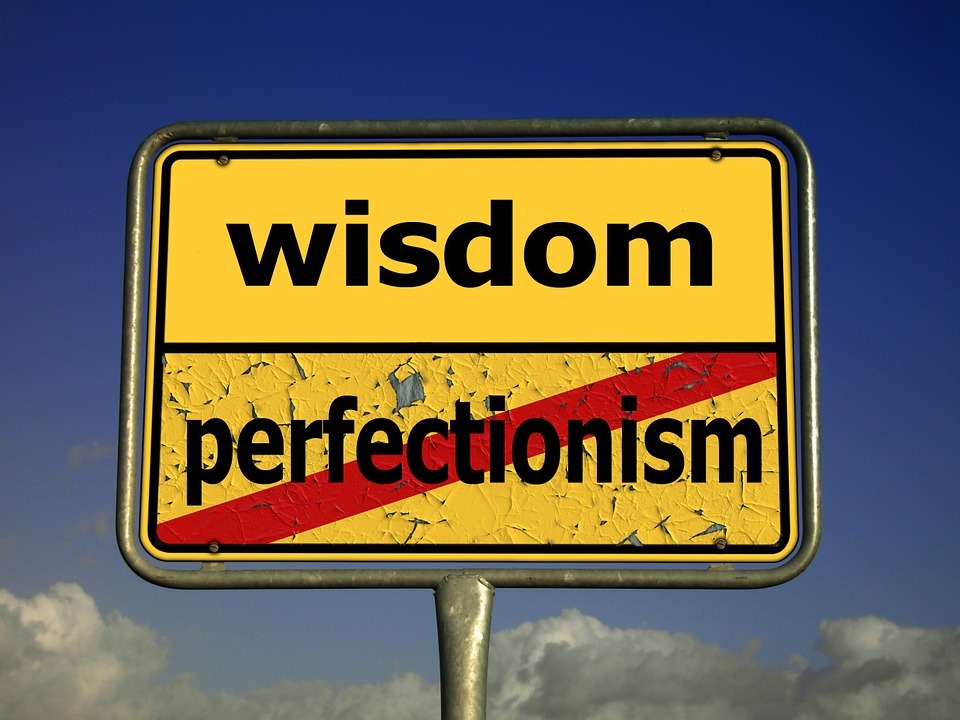There is a segment of the population that suffers from a particularly debilitating mental quirk; that of perfectionism. A somewhat misunderstood condition, perfectionism is often misconstrued by outsiders as a positive trait which increases an individual’s chances of success in life, when, in reality, it usually leads to self-defeating thoughts and behaviors which impede success.
The primary way perfectionism manifests itself is in the feeling that nothing a person does is ever quite good enough—no creation, no accomplishment, no small task, no conversation. For those who experience it, it can be overwhelming, and if left unchecked, it can grow to dominate their psyche and govern their actions. So, how can those unfortunate souls subject to a hyper-critical inner voice deal with the situation? What can be done to silence the perfectionist within? By means of answering, John Kissick, a trained painter and writer, provides a series of small psychological tricks and techniques that can be used to quell the instinct to constantly strive for perfection.
Set Deadlines
One of the most effective ways to stave off the insidious inclination to refine, rework, and tinker with a project until it is perceived to be without fault is to set and abide by strict deadlines. By doing this, the amount of time dedicated to obsessing over a task is limited ahead of time, and the amount of effort spent worrying over it is at least partially contained.
Recognize the Inner Critic
Although many perfectionists will claim that the root of their condition is a crippling fear of the judgment of others, this is usually something of an exaggerated fantasy. The truth is that the vast majority of other people encountered by a perfectionist in a given day spend virtually no time analyzing them, let alone thoroughly evaluating them. In fact, most of the harsh judgments experienced by perfectionists do not come from friends, family, neighbors, or co-workers, but rather by an omnipresent and hyper-critical inner voice. The acceptance of this fact is key to overcoming the perfectionist mindset. Once the inner critic is recognized for what it is—an assassin of self-worth and an impediment to contentment then it can be dealt with more broadly.
Rethink Motivation
“One of the best methods of dealing with the toxic inner critic is to rethink motivation, focusing on processes instead of results” states Kissick.”One of the major drawbacks of perfectionism is a tendency to stay inside one’s comfort zone, ill-at-ease with trying new experiences or engaging in unfamiliar activities for fear of appearing foolish and inept.” Tragically for perfectionists, this approach to life greatly hampers learning new skills. The way to address this problem is simultaneously simple and difficult, as it involves rewiring some deeply embedded assumptions. In the mind of a perfectionist, results are of paramount and singular importance, while processes are simply a means of achieving desired results. Motivation must be shifted, therefore, from results to processes. To use an analogy from the sports world, what’s important isn’t the final score of the game, but that the plays were executed well. And, at the risk of over-extending the metaphor, there will always be another game.
Reinterpret Perception of Outcomes
After the shifting of motivation from results to processes is accomplished, the next step a person can take to reduce perfectionist tendencies is to reinterpret their perception of outcomes. It is imperative to remove the entrenched idea of binary, ‘win-or-lose’ outcomes that leave no room for middle ground. Such a mindset can be very damaging, and, when taken to extremes, can even lead to deviant social behavior. By shedding this outlook, a perfectionist will give themselves permission to try things without needing the validation of immediate triumph. Any unsuccessful attempts will be thought of not as failures, but as opportunities for learning and personal development. There are many shades and nuances to all aspects of life—outcomes included. Ultimately, embracing a philosophy of self-forgiveness and realizing that imperfections are natural and inevitable will do a person far more good than harm.
Perfectionism can be paralyzing—ask anyone who suffers from it. Besides simply inhibiting a person’s enjoyment of life, it can cause physical problems like ulcers. It can lead to professional burnout. It can trigger anxiety and depression, as well as a host of other mental health issues. The path to conquering a proclivity for perfectionism is difficult, but with discipline and an open mind it is possible. For those that suffer from the condition, finding a way of mitigating it or shedding it altogether is the key to a happier and healthier all-around life.

